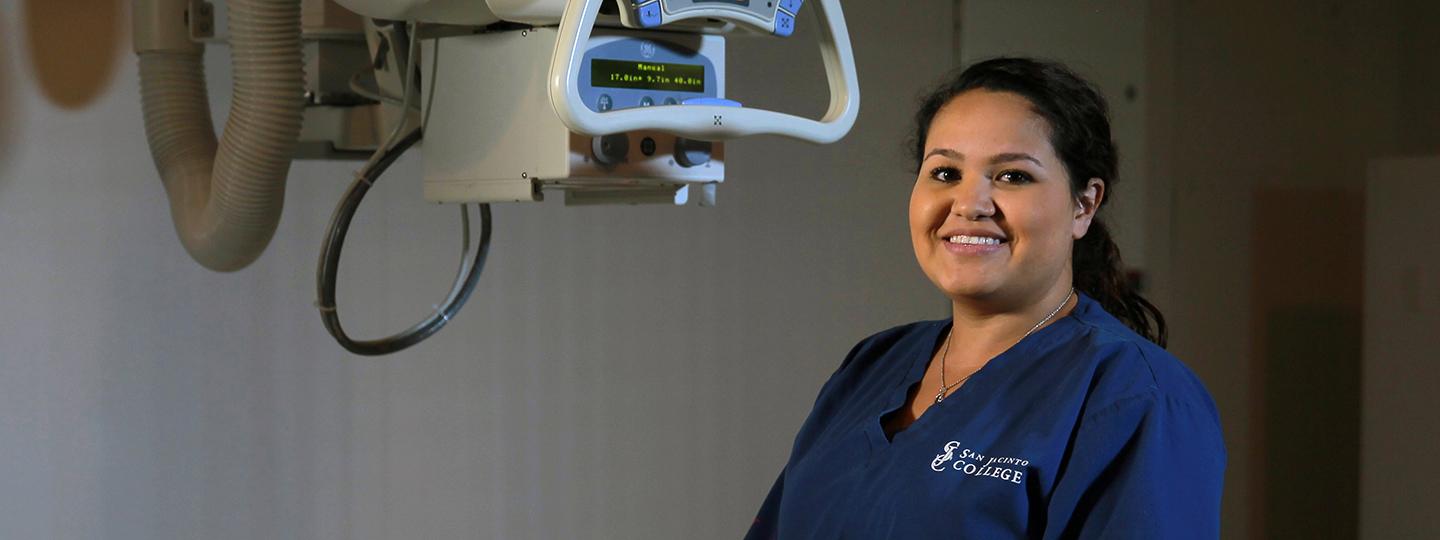How to ace your clinical rotations

Enrolling in a San Jacinto College health science program? Then chances are you've heard of clinical rotations — unpaid work-based learning experiences in settings like doctors' offices, clinics, and hospitals.
Supervised by clinical professionals, students apply their classroom learning in real-world settings to prepare for their certification exams and, ultimately, careers.
Did you know clinicals are mandatory for every health science student? And not only critical to completion of your program but also a gateway to job opportunities? What if you could get inside tips on how to make the most of your clinical experience?
Stop wishing. San Jacinto College faculty members share how to ace your clinical rotations.
Get Started
Clinical rotations can start as early as the first semester of some health science programs (though typically later) and can run anywhere from 6 to 24 hours a week depending on the field of study.
Throughout your time at San Jacinto College, you will participate in clinicals at several different health care entities affiliated with the College.
Instructors try to match you with your area of interest but may not always be able to accommodate. In fact, some locations — Texas Children's Hospital, for example — require additional testing before students can do rotations there.
The goal of clinicals is on-site experience under a professional's guidance.
"Clinical rotations play a vital role in helping students transition from classroom learning to patient care. Nothing simulates the real world of patient care better than the real world," said Mina Cauthen, director of clinical education for the physical therapist assistant program.
At your site, you can expect to shadow professionals while having access to patients and doing the actual work for which you're training.
Ask Questions . . . Sometimes
Clinicals are your opportunity to witness theory in practice. As you prepare for your program certification exam, you have the benefit of professionals to help answer your questions.
Catherine Yendell, program director of surgical technology, encourages students to learn everything possible in the clinical environment but also to be aware of appropriate timing. Sometimes questions must wait.
"When my students are assisting with a surgery, talking can distract the surgeon. I tell them to speak only when spoken to during the surgical procedure," Yendell said.
Go the Extra Mile
You're in the clinical rotation to learn, but you're also there to help. Be respectful and courteous to every medical professional and patient you encounter.
This could mean finishing one task and immediately looking for another opportunity to help, showing empathy to patients, or assisting with translation if language is a barrier.
"Students are not always aware of how hard they will work. It's vital to develop good soft skills and become culturally competent to succeed in clinical rotations," Cauthen said.
Finally, San Jacinto College instructors all agree cell phones should be stowed away during clinicals and no photos taken or shared on social media.
Manage Your Time
Health science programs guarantee lots of free time, said no one ever. Most San Jacinto College health science programs follow a rigorous schedule, with courses and clinicals to be completed in fast-paced timeframes.
While doing clinicals, you may still be taking classes and/or studying for your certification exam. Plan your schedule in an Outlook-style calendar to ensure time for personal priorities and sleep, Diana Johnson, medical assisting program director, said.
"In clinicals, you might work an 8-5 day, then get home at 6. You may have a family, a significant other, or an actual job, but you also have to find time to study two hours every night," Johnson said. "You'll probably have to give up a few hours of sleep during clinicals, but it's a short-term sacrifice to reach your career goals."
Conclusion
Surveyed San Jacinto College graduates often report clinical rotations as the best part of their health science programs. Not only do clinicals allow you to get into the field, but they also help you ensure you've made the right career choice.
In many cases, employers use clinicals to "test run" students to determine whether they're a good fit for the organization. Even if there are no immediate job openings, the employer may later contact the graduate to offer a position.
"Clinicals are the beginning of your career and reputation. You don't have to know everything, but you must be willing to learn. Take it all in, work hard, and be proud of yourself. Most importantly, enjoy this time!" Cauthen said.
With clinicals and a certification under your belt, you're on your way to a rewarding career!
